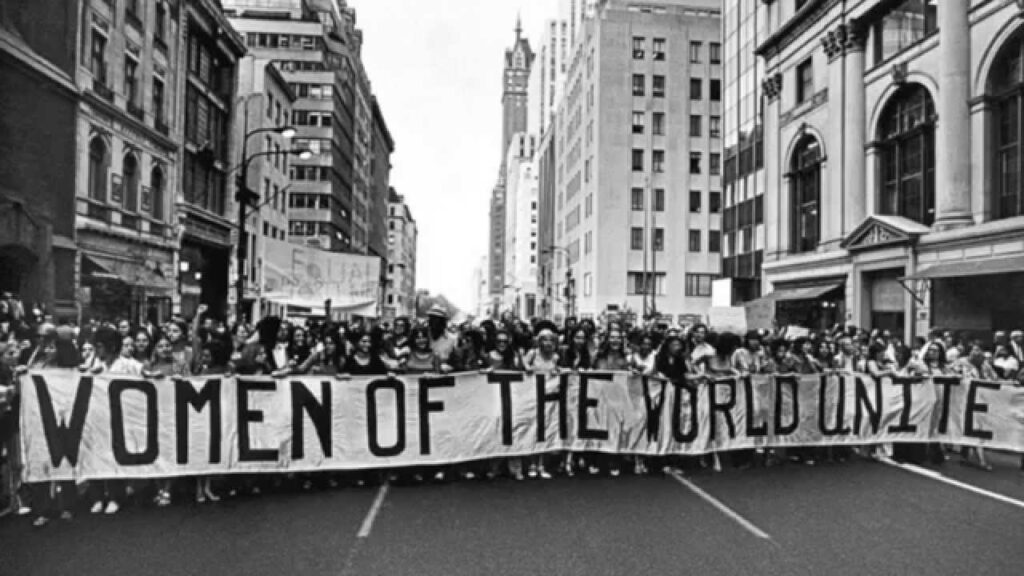March is National Women’s Month,
and we are celebrating women all week at RogerEbert.com by turning over the site to articles and reviews by our women writers. Somehow that sounds so 1970s, because I do
remember rallying for women’s rights in the ’70s and thinking that by now there
would be no need to make the differentiation in gender. The reality is that women still make only 77
cents to every dollar for a man, and only 4% of the top 100 movies were
directed by women.
Reports from USC’s Annenberg School For Communication and Journalism and from the Center For The Study of Women in Television and Film at San Diego State University confirmed the appalling
inequity in the participation of women and people of color in the film and
television industry. The Equal Employment Opportunity Commission last year
began investigating gender discrimination in Hollywood. And Meryl Streep
decried the disproportionately low numbers of women film critics cited on
Rotten Tomatoes. In my article on the
lack of diverse voices in film criticism published at The
Daily Beast, I posit that being introduced to
diverse critical voices and opinions in the arts not only affects how we see
the world but also has a profound influence on how we begin to heal it. I am hoping that in some small way our
women’s edition can contribute to some of the healing.
But it is not that easy. Back in
December 2013 I experimented with a “Women Writers” week (here) to tackle the age-old question,
how are women different than men? The
question was specifically addressing whether female film critics review movies
differently than male film critics. We acknowledged that there was sometimes a
critical consensus that had nothing to do with race, or gender or age. But over the years I have found that for some
movies, particularly movies about or by women, a female voice can illuminate
nuances sometimes overlooked by the male critics. And especially in male-centric movies, the
female critics can address the abject objectification of the women characters
in throwaway roles that could have been written differently. For instance, it’s a bit depressing that Susan
Wloszczyna’s article about hiring women directors to help rescue the superhero
movie can run again today and be perhaps even more vital than it was in 2013.
This is to be a week of
celebration. We will certainly identify issues and write about them. We will
hear from Jennifer Merin who founded the Alliance of Women Film Journalists
about why it was necessary to start that organization. But some of the writing
and interviews and reviews will be just for the sake of reveling in the
beautiful words of our women film critics and journalists. Angelica Jade
Bastien will take you into the power of Bette Davis. Justine Smith will write about violence and
the movies of Sam Peckinpah. We will have a look at the 25th
Anniversary of “Thelma and Louise,” from the perspective of three different
writers. Nell Minow will report on the legacy of the late Nora Ephron. Jessica
Ritchey will take a look at ”The Double Life of Veronique,” and much, much more.
On Friday, our regular film
review day, ALL of the new reviews will be written by women. We will have
Richard Linklater’s new movie, “Everybody Wants Some,” reviewed by Sheila O’Malley; “Afternoon” reviewed by Tina Hassania;
and “The Dark Horse” an emotionally involving movie about chess and poverty and
life in New Zealand, reviewed by Sheila O’Malley. Joining those reviews will be “Francofonia” reviewed by Alissa
Wilkinson; “God’s Not Dead 2” reviewed by Sheila
O’Malley; “H.” reviewed by Monica Castillo; and “Kill Your Friends” reviewed by Christy
Lemire.
Other movie reviews to look forward to
this week are: HBO’s “Mapplethorpe: A Life in Pictures”
reviewed by Justine Elias, “Meet the Blacks” reviewed by Christy
Lemire, and “Miles Ahead,” in which Miles Davis is played by Don Cheadle, who also directs, will be reviewed by Angelica Jade
Bastien. And to round things off we will have “Sold” reviewed by Joyce
Kulhawik, and “Standing Tall” reviewed by Susan Wloszczyna.
Last time, Joyce Kulhawik wrote an article
giving advice to her younger self that I think bears re-reading. She said she
looked around in 2011 and was shocked at how little power women wielded in the
world. I can replace the current year and rephrase what she said: “In the year
2016, women remain underserved, undervalued, underrepresented and underpaid.”
We are hoping to change that.
Yours Truly,
Chaz Ebert












